|
The belief that faith and reason are complementary ways of coming to know the truth, rather than antagonistic rivals or competitors for one’s allegiance, has its foundation in the NT itself and, ultimately, in a person rather than a text.
When the earliest of Christian writers were searching for ways in which to articulate the meaning of what we might call the “Jesus Event,” i.e., the life, death and resurrection of Jesus of Nazareth, one of the first associations they made was between Jesus and the ‘wisdom’ [σοφία] or ‘reason’ [λόγος] of God. Drawing from the book of Wisdom, St. Paul refers to Christ as “the wisdom [σοφίαν] of God” (1 Cor 1:24). “All things were created through him and for him,” the Apostle states elsewhere, “He is before all things, and in him all things hold together” (Col 1:16-17). These latter remarks about Jesus, the identification of him with God’s divine wisdom, NT scholars agree pre-date St. Paul himself. They were, most likely, part of a hymn to Christ which the early Christian community used in their liturgical services. Thus, from the very beginning of Christianity, before the composition of the NT, Christians understood Jesus as the incarnation, the en-fleshment, of God’s divine wisdom; the wisdom by which God created, governs and sustains the natural world. The living embodiment of the ‘plan’ (ratio) according to which the cosmos was designed and functions. A bit later in Christian history, around the year 90, this belief was given its classic expression in the prologue to St. John’s Gospel: “In the beginning was the Word [λόγος], and the Word was with God, and the Word was God. He was in the beginning with God. All things came to be through him, and without him nothing came to be” (Jn 1:1-3). The Greek term for ‘Word’ [λόγος] in this translation can have many meanings: word, speech, language, an account or narrative, or an explanation. It can also mean, most importantly, ‘reason’ or ‘thought.’ So if we exchange translations, we can read the same passage as: “In the beginning was Reason and Reason was with God, and Reason was God. He was in the beginning with God. All things came to be through him, and without him nothing came to be.” With his obvious linguistic allusion to Genesis 1:1 [i.e., “In the beginning…”], the author of the prologue is affirming the divine nature of God’s reason and wisdom. A few verses later, of course, the author takes the further step of associating this Reason with the person of Jesus: “And the Word [Reason] became flesh and made his dwelling among us” (Jn 1:14). For the Catholic, then, as true now as was for these early Christian authors, it is in God, and especially through the person of His Son Jesus Christ, that Wisdom, Reason and Truth have their being. As Jesus said: “I am the way the truth and the life” (Jn 14:6) and “for this I was born and for this I came into the world, to testify to the truth. Everyone who belongs to the truth hears my voice” (Jn 18:37). Understanding that the world was created according to divine reason, and that the seeds of reason are to be found in the entire created order, the Catholic tradition has long affirmed the human capacity, and supported the human effort, to discover truth in the natural world by the light of human reason. It is true that the early Christian theologian Tertullian famously asked the question: “What has Athens to do with Jerusalem?” (De praescr. haeret. 7). But on that matter, and quite a few others, Tertullian was departing from the established Christian thought of his time. The Catholic tradition, on the other hand, acknowledges that since truth cannot be opposed to itself, the truths of the faith cannot contradict those of science or reason (cf. Aquinas SCG 1.7). Faith and reason are not competitors, but the two complementary ways in which humankind might come to know the truth. This point has been articulated throughout the Catholic intellectual tradition and, more recently, the Second Vatican Council stated that “methodical research, in all realms of knowledge, if it respects […] moral norms, will never be genuinely opposed to faith: the reality of the world and of faith have their origin in the same God” (GS § 36). Likewise, Pope St. John Paul II stated that faith and reason are two complimentary ways of coming to the truth because “the unity of truth is a fundamental premise of human reasoning, as the principle of non-contradiction makes clear” (FR § 34). The mutual necessity of both faith and reason is nowhere more evident than in the discipline of theology. In examining the application of reason to matters of faith, St. Augustine once wrote: intellege ut credas, crede ut intellegas (‘to understand so that you might believe, to believe so that you might understand’) (s. 43.9). More than half a millennium later, the Benedictine archbishop of Canterbury, St. Anselm, meditating on St. Augustine’s thought, would famously define theology as fides quaerens intellectum (‘faith seeking understanding’) (Cf. Pros. 1-2). In attempting to sum up this intellectual inheritance, this particularly Catholic way of viewing, inter alia, the relationship between faith and reason, many writers have taken to calling this hermeneutic the Catholic “both/and.” As opposed to looking at the world and seeing a multitude of choices which demand an “either/or” decision, the Catholic “both/and,” being sensitive to false dichotomies, sees the value – and in many instances the necessity – of each choice: nature and grace, action and contemplation, freewill and providence, invisible grace and material signs, and, of course, faith and reason. From the Catholic perspective, therefore, the relationship between faith and reason has never been an antagonistic one. Rather, the Catholic sees the proper use of one’s intellect as an activity which draws us nearer to God by seeking His Wisdom. Anthony Coleman teaches theology for Saint Joseph’s College Online This blog post was originally published on the St. Joseph’s College of Maine Theology Faculty Blog. Click here to learn more about our cooperative alliance with St. Joseph’s College Online.
1 Comment
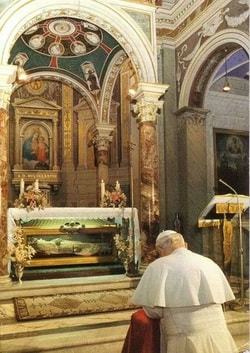 "John XXIII and John Paul II cooperated with the Holy Spirit in renewing and updating the Church in keeping with her pristine features, those features which the saints have given her throughout the centuries." - Pope Francis This past Sunday was a unique and amazing day of four popes, the two pope saints, John XXIII and John Paul II and the two living popes, Pope Francis and Pope Emeritus Benedict! The renewal and updating of the Church called for by the Second Vatican Council, initiated by St. John XXIII, and central to the work of the New Evangelization as articulated by St. John Paul II continued through the efforts of Pope Emeritus Benedict XVI, especially the Synod on the New Evangelization and finding even greater momentum through the witness of Pope Francis. Among them all, along with Paul VI, the Council, and Church leadership in general has called all of the baptized to engage in greater co-responsibility for the life of the Church and for the work of evangelization. Various pundits, both in Church and secular media, are quick to give their sometimes very simplistic analysis of why the two popes were canonized together and the message that Pope Francis is trying to convey. If there is any "message", I believe that it is a continued or re-commitment to the on-going renewal of the Church in trustful cooperation with the Holy Spirit and in prayerful communion with the saints. St. John XXIII and St. John Paul II were both visionary leaders who put forward programmatic plans for not simply renew of the Church as an institution, but renewal of all the baptized in faith and holiness who are called to go forth to the world and renew it as well. In 1959, St. John XXIII said, "Profession of the Christian faith is not intelligible without strong, lively apostolic fervor" (Princeps Pastorum, 32). The Second Vatican Council confirmed this understanding in Lumen Gentium through its teachings about the Universal Call to Holiness and the role of all the baptized in the mission of Christ. St. John Paul II was one of the drafters of the Decree on the Apostolate of the Laity (Apostolicam Actuositatem) along with the then Rector General of the Society of the Catholic Apostolate, Fr. Wilhelm Möhler. St. John Paul taught in his apostolic exhortation Christifedles Laici, which followed the Synod on the Laity in 1987, that The Second Vatican Council has reminded us of the mystery of this power and of the fact that the mission of Christ - Priest, Prophet-Teacher, King - continues in the Church. Everyone, the whole People of God, shares in this threefold mission (14). Just after the close of the first session of the Council, St. John XXIII canonized the Patron of the Catholic Apostolate Center, St. Vincent Pallotti, calling him "an innovator of new ways whereby people could come to know the love of God" (Cf. L'Osservatore Romano, January 23, 2013). Pallotti understood well the call of all to be apostles or what Pope Francis calls in Evangelii Gaudium, "missionary disciples" (120). The Center continues Pallotti's mission in the way that St. John Paul II described it to members of the Union of Catholic Apostolate when he said: Continue to multiply your efforts so that what Vincent Pallotti prophetically announced, and the Second Vatican Council authoritatively confirmed, may become a happy reality, and all Christians become authentic apostles of Christ in the Church and in the world! (Homily at San Salvatore in Onda, June 22, 1986). Mary, Queen of Apostles, pray for us! St. Vincent Pallotti, pray for us! St. John XXIII, pray for us! St. John Paul II, pray for us! Fr. Frank Donio, S.A.C., is the Director of the Catholic Apostolate Center "The apostolate of the laity derives from their Christian vocation and the Church can never be without it."
These words come from the opening lines of the “Decree on the Apostolate of the Laity” (Apostolicam Actuositatem), one of the nine decrees that come out of the Second Vatican Council. They are quite moving and powerful documents that were handed down to us by the council fathers. This particular document on the laity shows that the Church is dependent on the apostolate of all people. But the term “apostolate” seems so daunting; clearly the word is rooted in the idea of being an apostle. I tend to think back to the Twelve Apostles, which creates a certain amount of anxiety. How can I even think about living up to the great examples of these twelve? Yet they are our example, and our apostleship is essential to the life of the Church. In the Church we tend to use the word apostle quite a bit and in many different ways. It appears in terms such as: apostolic, apostolate, and apostleship. To find a secular answer, I looked up the word “apostle” in a Merriam-Webster dictionary. In using a dictionary, my hope was that I might come to a better understanding of what it means to be an apostle. The first definition that I came across for apostle was "one sent on a mission." This first meaning really helps expand the idea of the New Evangelization in simple terms. The discovery of this definition led me to formulate the following question: "What is our mission as baptized Catholics?" This is a very important question that has been the subject of major debate. A simple answer is that we are called to go out into the world around us and proclaim the Good News of our Lord, Jesus Christ. How this is accomplished is a decision that must be made by each one of us. We must find our own niche in the greater mission of Christ. We have been given a divine mission that we must go out and complete. An interesting dilemma of this universal apostolic call is that for some reason people tend to shy away from it. I think that people tend to think that they are not worthy of such a calling or that they are not holy enough. Nothing could be further from the truth. We have all been given the necessary gifts from God to be able to be an apostle. These gifts are not always automatically known to us. Because of this, it is essential that we go out into the world and discover what our God-given talents are. Once we have become aware of our gifts, the task at hand becomes more manageable and attainable. Personally, I have found that being an apostle in the world today can be quite difficult. Through my active search and prayer to recognize the gifts and talents God has given me, I have discovered that I am someone who is easy to talk to. In response to this realization, I make myself available for people, especially my close friends, and I make sure that I both listen and give general advice when necessary. Doing this, however, can be difficult because there are many instances when time is limited, and I need to make a decision about what to put on hold. This can be difficult, so I stop to think about the things on my agenda versus the needs of the person seeking my counsel. Taking this time to reflect makes the decision quite clear. I developed a series of questions that has helped me in this process. I’ve found it very beneficial to go over them every now and again, particularly during the Lenten season. The questions are: Do I understand what it means to be a true apostle of Christ? Do I have an understanding of my mission at this current time in my life? Am I making decisions that help in my mission? Do I understand the gifts that God has given me to fulfill my mission? Do I thank God for these gifts and abilities? My hope is that you find these questions as helpful as I have. Mary, Queen of the Apostles, pray for us! Pat Fricchione is the Research & Production Associate for the Catholic Apostolate Center. Editor's Note: This post was originally published on March 27, 2012. "Commitment to ecumenism responds to the prayer of the Lord Jesus that 'they may all be one' (Jn 17:21). The credibility of the Christian message would be much greater if Christians could overcome their divisions and the Church could realize 'the fullness of catholicity proper to her in those of her children who, though joined to her by baptism, are yet separated from full communion with her' We must never forget that we are pilgrims journeying alongside one another. This means that we must have sincere trust in our fellow pilgrims, putting aside all suspicion or mistrust, and turn our gaze to what we are all seeking: the radiant peace of God’s face” (Evangelii Gaudium, n. 244).
Over the nine years that I was at St. Jude Shrine in Baltimore, Maryland, I had the opportunity to participate in and then to host an annual prayer service for Christian Unity. It became a very popular celebration and leaders from various Christian communities participated, including the Archbishop of Baltimore. To me, though, the most important people who participated were the people who went week to week to their faith communities in various parts of Baltimore, but never had the opportunity to pray together with Christians from other communities. Prayer is powerful and to underestimate its power to unite us leaves us lacking in the virtue of hope. Such hope is not naïve, but is based on firm trust in the work of the Holy Spirit. The annual Week of Prayer for Christian Unity will begin on Saturday, January 18th and conclude on the Feast of the Conversion of St. Paul on January 25th. Year after year, Christians are invited to pray that “they may be one.” St. Vincent Pallotti, patron of the Catholic Apostolate Center and founder of the Union of Catholic Apostolate, worked diligently for unity in the Church, using the liturgical Octave of the Epiphany in Rome as a means to unite in prayer members of the Eastern and Western traditions of the Catholic community who were rather disconnected from one another. This celebration was held in the city of Rome from 1836 until 1968. His feast day, on January 22nd, is in the middle of the Week of Prayer for Christian Unity. Collaboration of all Christians can lead us toward Pallotti’s vision, hope, and prayer that one day we may be “one fold, under one Shepherd, Jesus Christ” (Cf., Jn 10:16) Since our mission as the Catholic Apostolate Center is derived from the charism of St. Vincent Pallotti, who fervently prayed for such a day, we invite you to pray not only individually, but draw other Christians together in prayer. Prayer, though, is not the only thing that we can do. We can learn more about what the Roman Catholic Church teaches about the needed work for building unity among Christians. We invite you to explore the many resources that we have on our new Christian Unity page. May we also take up the call of the Catholic Church spanning from the time of the Second Vatican Council to the appeal of Pope Francis today: "The search for unity among Christians is an urgent task... We are well aware that unity is primarily a gift from God for which we must pray without ceasing, but we all have the task of preparing the conditions, cultivating the ground of our hearts, so that this great grace may be received" (Address to the Delegation of the Ecumenical Patriarchate of Constantinople, June 28, 2013). Our new Christian Unity resources can be found here. Fr. Frank Donio, S.A.C. is the Director of the Catholic Apostolate Center Growing up in a stereotypical American Catholic family, my parents always kept our faith at the center of family life. While we didn’t go so far as nightly recitations of the rosary together, I did have a very faith-centered childhood. My weeks generally pivoted around two regular Church activities: Sunday morning Mass and Tuesday night Religious Ed. We always ate dinner together as a family and prayed before the meal no matter what. When my sister and I were young, they read us stories out of our children’s Bible, and as we got older, they encouraged us to receive the sacrament of Confirmation and continue our faith journey as adults when we each went to college. Overall, I daresay they were successful: my sister and I still attend Sunday Mass on our own, and I’ve maintained further involvement in Church through the Knights of Columbus.
While my mom and dad had very different approaches to sharing the faith with us, they consistently worked as a team to make sure we had a Christ-centered upbringing. The reason for this, as I look back, is obvious: they have always had a Christ-centered marriage. Both came from Catholic families of 5 or more (Dad was one of 12!) and have always relied on their relationships with God to guide them through life’s difficulties and joys. There is always a Bible on hand, and numerous crucifixes and pictures of Mary are scattered throughout their home. The presence of God in our daily lives is something regularly acknowledged in everything we do as a family. I don’t know what kind of marriage prep they went through before their wedding, but it is clear that they understand marriage for what it is: a Vocation, a calling from God. Everything my parents do, they do for each other. Whether it was Dad helping with the laundry on Sunday mornings, Mom keeping a plate warm when Dad worked late or had a Scout meeting, or giving each other breaks from me and my sister, their lives have always been focused in on our life as a family. I once heard that the home should be like a “miniature Church”. My parents have gone above and beyond in making that a reality for our family, whether any of us realized it or not. In the Church, we always make a point of praying for Vocations to the priesthood and religious life, but I believe we’re often forgetting the other all-important Vocation to married life. That is not to say that we don’t need to pray for more holy priests, brothers, and sisters; we do! But I propose that we pray just as hard for true, faith-formed Vocations to marriage. With all the broken families we see in our society, it almost seems a miracle to meet couples who have remained faithful and totally in love. Those are the couples who, whether religious or not, view their marriage as a higher calling to give themselves totally to one another. In Gaudium et Spes (aka The Pastoral Constitution on the Church in the World), promulgated by Paul VI during Vatican II, we hear that “married people can become witnesses of the mystery of love which the Lord revealed to the world by His dying and His rising up to life again.” This speaks directly to the self-giving nature of a true Christian marriage; spouses are called to mimic the love between Christ and the Church, the bride which He died for. Any happily married couple can attest to the great deal of self-sacrifice needed to maintain a healthy marriage. What our world so desperately needs is right in front of our faces: with families splitting up left and right, marriage has been devalued to no more than a “feel good” reaction. The understanding of marriage as a calling to daily self-sacrifice must be emphasized if we are to reverse the trend of so many broken families and such a high divorce rate. My parents, who celebrate 25 years of marriage today, are one of the millions of couples throughout the world who strive to answer their daily call to empty themselves for one another as Christ did for each of us. Please join us in praying that their collective example will inspire young couples to focus their intentions on creating that same kind of self-giving love. Jay Schaefer is the Webinar Associate of the Catholic Apostolate Center, in addition to his full-time career as a Civil Engineer in Baltimore, MD. As emerging adults in the Catholic Church many times we are asked the question why are you Catholic? or why do you remain Catholic? Sometimes asked from friends who fell away and sometimes asked by others in the Church that are surprised to see you present and active. We, as a Center, would like to share with you, at the end of each month, why we are Catholic and where it is that we find joy in our faith.
“We are an Easter people and ‘Alleluia’ is our song!” -St. Augustine of Hippo I first heard this quote several years ago, but it wasn’t until recently that I began to understand it more fully. Some of you may be wondering why I am writing about Easter in October, but this is exactly my point! We arealways an Easter people, and we should constantly direct ourselves towards the joy of the Resurrection! Nothing orients one towards Easter quite like participating in RCIA. This year, for the first time, I am helping to prepare catechumens, candidates, and confirmandi for full initiation into the Church during the Easter Vigil mass. This group is distinct from other RCIA groups because it is composed entirely of college students, both graduate and undergraduate, who are studying at the Catholic University of America in Washington, D.C. Every Thursday night, the ten or twelve students come together to learn about the faith through catechetical sessions presented by a member of the theology faculty or one of the chaplains of the university. Some students come straight from rugby practice, others from study sessions in the library, and a few grad students sacrifice time away from their young families to join us. What brings them all together in the campus ministry lounge on Thursday nights is a nascent love for the Church and a deep desire for the grace imparted through her sacraments. To put it simply, even in October they are oriented towards the joy of Easter. The Second Vatican Council’s Pastoral Constitution on the Church in the Modern World (Gaudium et Spes) opens with the following words: The joys and the hopes, the griefs and the anxieties of the men of this age, especially those who are poor or in any way afflicted, these are the joys and hopes, the griefs and anxieties of the followers of Christ. Indeed, nothing genuinely human fails to raise an echo in their hearts. In the next few days, the Church celebrates not only the joy of “All Saints” and the hope of “All Souls,” but we also share in the sorrow of the families and communities whom the faithful departed have left behind. It is this sense of community that calls others into the fold. As members of the Church we are called to share in the burdens of our fellow man, but we do so with the recognition of what God-made-man has already done for us. However heavy our loads, we have hope in Christ who shouldered all of our burdens and sacrificed himself for our sins. We share the grief of others because Christ has shared in our grief; but we must also share the hope and joy that we have in Him . . . the same hope and joy that brings twelve college students together for an hour each week on a busy school night to reflect upon the beauty of our faith. Where do I find joy? In the catechumens who long for Easter – even in October! – and yearn to become members of our community of faith. Leave it to the neophytes in the faith to teach us something about Christian joy! Easter in October? I’m all for it! Brett Garland is a Collaborator with the Catholic Apostolate Center. This post was originally published by the Catholic Apostolate Center in October 2012 The following is a portion of Blessed John Paul II’s address to the Pallottine Fathers and Brothers on
October 6, 1998, speaking to them about their work in reviving faith, rekindling charity and forming apostles. …To live the faith means to share in Christ's life. In Jesus we can discover our true nature and fully appreciate our personal dignity. Proclaiming Christ so that the image of God may be restored to each person in all its fullness is the ultimate goal of the “new evangelization”. You, called in a particular way by your charism to revive faith and rekindle love in every situation, should be very clearly aware of the preferential option for the “image of God” that is waiting to be revealed in the life of every brother and sister. Recognize Christ’s face in everyone, appreciating every human being regardless of his condition or status. This is what St Vincent Pallotti did, whose sole concern was the interior renewal of human beings for the sake of their sanctification. To imitate his apostolic zeal, you must first strive for personal holiness. Only in this way will you be able to foster it in others, by remembering the universal call to holiness clearly made by the Second Vatican Council. It is this awareness that must motivate your contribution to the work of the new evangelization. In this way you will be effectively prepared to enter the new millennium and will actively co-operate in fulfilling the mission that the Father of our Lord Jesus Christ entrusted to the entire ecclesial community. The commitment to personal holiness must be lived within your communities in the various parts of the world: work in unity and harmony to be authentic witnesses to the Gospel for those you meet in your daily ministry. In the Apostolic Exhortation Vita consecrata I wrote: “The Church entrusts to communities of consecrated life the particular task of spreading the spirituality of communion, first of all in their internal life and then in the ecclesial community, and even beyond its boundaries, by opening or continuing a dialogue in charity, especially where today’s world is torn apart by ethnic hatred or senseless violence” (n. 51). It is by witnessing to the fraternal life, understood as a life shared in love, that you become an eloquent sign of ecclesial communion (cf. ibid., n. 42). This deep understanding among yourselves will help you live your “unity in Christ” and make you ready and willing to respond to each person’s spiritual and material needs. In this regard your founder loved to say over and over that “the gift of cooperating in the salvation of souls is one of the most divine” (Opere complete XI, p. 257). This gift should be shared with lay people, your daily co-workers in the apostolate, as well as within your institute. Involve them and welcome them into your life of communion. “Today”, I wrote in the above-mentioned Apostolic Exhortation Vita consecrata “many institutes have come to the conclusion that their charism can be shared with the laity” (n. 54). “The participation of the laity often brings unexpected and rich insights into certain aspects of the charism, leading to a more spiritual interpretation of it and helping to draw from it directions for new activities in the apostolate” (n. 55). In this way, the Society of the Catholic Apostolate, conceived and founded by St Vincent Pallotti, will allow you not only to co-ordinate the different resources of your communities, but also to be at the very heart of the Church’s apostolic mission in today's world. May you find help in Mary, faithful and obedient handmaid of the Lord and an excellent example of fidelity to the apostolate. United in prayer with the disciples in the Upper Room of Jerusalem while awaiting the gift of the Holy Spirit, she offers you the example of constant prayer, willingness and active commitment to the Church’s mission. May God renew the marvels of Pentecost in you and in your institute through her motherly intercession… Ever consider yourself an apostle? Last year, the 42 year-old Andrew Lloyd Webber musical, Jesus Christ Superstar, returned to Broadway for another run. The Apostles reflectively sing during the Last Supper, “Always hoped that I'd be an apostle, knew that I would make it if I tried,” as if they really knew what they were getting into when they agreed to Jesus saying “Follow me!” Of course, they didn’t. It would be like you saying, “Always hoped I’d be a volunteer, knew that I would make it if I tried.”
At some point someone, even if that Someone was speaking within, invited you to consider doing volunteer service and now you are doing it. Did you know exactly what you were getting into when you applied? Like the Apostles, probably not. You hoped to serve and give of yourself. Now after some time of service, you have much more of an idea of what you are doing and what it means to give of yourself in service. Even if your time of service is not coming to an end right now, you might be asking a couple of questions: “What am I going to do next?” “What am I going to do with my life?” No need to panic over them. Spending time reflecting on these questions is important, but sometimes that reflection can move in the direction of narcissism.Obviously, service is focused on others rather than ourselves. An outward-focus, while inwardly deciding, can offer a possible way forward. A bit of wisdom from Pope Francis from this past Easter Sunday speaks to this needed balance: “Let us be renewed by God’s mercy, let us be loved by Jesus, let us enable the power of his love to transform our lives too; and let us become agents of this mercy, channels through which God can water the earth, protect all creation and make justice and peace flourish.” Notice that we are in the middle, not as passive participants, but actively living the mercy and love of Jesus Christ toward a world in need of care, to people in need of service. We are sent by him. We are apostles. Ever think of yourself as an apostle? We are. Each one of the baptized is an apostle of faith and charity to a world in need of the mercy and love of Jesus Christ. We share in his mission. This is our primary vocation (from Latin vocare – “to call”) in life. We have a vocation to be an apostle. Don’t believe me? I’m not the one who said it, Blessed John Paul II did. He was talking to my religious family, the Union of Catholic Apostolate, but his point was meant for all: “Continue to multiply your efforts so that what was prophetically announced by Vincent Pallotti, and the Second Vatican Council authoritatively confirmed, may become a happy reality, that all Christians are authentic apostles of Christ in the Church and in the world” (Homily of June 22, 1986). Blessed John Paul II was simply expanding on what was said during the Second Vatican Council in a document that he helped to write, the Decree on the Apostolate of the Laity. But, what does it mean to be an “authentic apostle of Christ in the Church and in the world?” It means living as one who is sent, and not simply living for ourselves or being only a follower. We are sharers in the mission of Christ in his priestly, prophetic, and royal offices (Catechism of the Catholic Church, n. 783-786). We are “consecrated” through baptism (priestly) to “witness in the midst of the world” (prophetic), in service, especially to “the poor and the suffering” (royal). Nothing passive here! Our vocation as apostles of Jesus Christ is an active one that moves us outward beyond ourselves to a world in need of his presence through us. Our vocation as baptized is our primary vocation. All of the other vocations as married, single, consecrated, or priest are all secondary to this primary vocation as follower of (disciple) and sent by (apostle) Jesus Christ. Each is a way one can live out the primary vocation. How does one decide? Through a process of discernment, one is called to be informed, pray, make a choice, and take action. I make it seem easy. The process is not an easy one, but necessary in order to make a truly informed choice about how to live our vocation as an apostle. You might not be ready to make a choice about what way to live this vocation for life, but living it out as an apostle is what you are already doing in your volunteer service and probably did long before now. Maybe the Apostles in Jesus Christ Superstar were not so far off then, we do want to be apostles; we only need to try. Fr. Frank Donio, S.A.C. is Director of the Catholic Apostolate Center. This piece was written for the Catholic Apostolate Center partner Catholic Volunteer Network, "Shared Visions" Newsletter. As emerging adults in the Catholic Church many times we are asked the question why are you Catholic? or why do you remain Catholic? Sometimes asked from friends who fell away and sometimes asked by others in the Church that are surprised to see you present and active. We, as a Center, would like to share with you, at the end of each month, why we are Catholic and where it is that we find joy in our faith.
“We are an Easter people and ‘Alleluia’ is our song!” -St. Augustine of Hippo I first heard this quote several years ago, but it wasn’t until recently that I began to understand it more fully. Some of you may be wondering why I am writing about Easter in October, but this is exactly my point! We are always an Easter people, and we should constantly direct ourselves towards the joy of the Resurrection! Nothing orients one towards Easter quite like participating in RCIA. This year, for the first time, I am helping to prepare catechumens, candidates, and confirmandi for full initiation into the Church during the Easter Vigil mass. This group is distinct from other RCIA groups because it is composed entirely of college students, both graduate and undergraduate, who are studying at the Catholic University of America in Washington, D.C. Every Thursday night, the ten or twelve students come together to learn about the faith through catechetical sessions presented by a member of the theology faculty or one of the chaplains of the university. Some students come straight from rugby practice, others from study sessions in the library, and a few grad students sacrifice time away from their young families to join us. What brings them all together in the campus ministry lounge on Thursday nights is a nascent love for the Church and a deep desire for the grace imparted through her sacraments. To put it simply, even in October they are oriented towards the joy of Easter. The Second Vatican Council’s Pastoral Constitution on the Church in the Modern World (Gaudium et Spes) opens with the following words: The joys and the hopes, the griefs and the anxieties of the men of this age, especially those who are poor or in any way afflicted, these are the joys and hopes, the griefs and anxieties of the followers of Christ. Indeed, nothing genuinely human fails to raise an echo in their hearts. In the next few days, the Church celebrates not only the joy of “All Saints” and the hope of “All Souls,” but we also share in the sorrow of the families and communities whom the faithful departed have left behind. It is this sense of community that calls others into the fold. As members of the Church we are called to share in the burdens of our fellow man, but we do so with the recognition of what God-made-man has already done for us. However heavy our loads, we have hope in Christ who shouldered all of our burdens and sacrificed himself for our sins. We share the grief of others because Christ has shared in our grief; but we must also share the hope and joy that we have in Him . . . the same hope and joy that brings twelve college students together for an hour each week on a busy school night to reflect upon the beauty of our faith. Where do I find joy? In the catechumens who long for Easter – even in October! – and yearn to become members of our community of faith. Leave it to the neophytes in the faith to teach us something about Christian joy! Easter in October? I’m all for it! Brett Garland is the Program Development Coordinator for the Catholic Apostolate Center. "The apostolate of the laity derives from their Christian vocation and the Church can never be without it."
These words come from the opening lines of the “Decree on the Apostolate of the Laity” (Apostolicam Actuositatem), one of the nine decrees that come out of the Second Vatican Council. They are quite moving and powerful documents that were handed down to us by the council fathers. This particular document on the laity shows that the Church is dependent on the apostolate of all people. But the term “apostolate” seems so daunting; clearly the word is rooted in the idea of being an apostle. I tend to think back to the Twelve Apostles, which creates a certain amount of anxiety. How can I even think about living up to the great examples of these twelve? Yet they are our example, and our apostleship is essential to the life of the Church. In the Church we tend to use the word apostle quite a bit and in many different ways. It appears in terms such as: apostolic, apostolate, and apostleship. To find a secular answer, I looked up the word “apostle” in a Merriam-Webster dictionary. In using a dictionary, my hope was that I might come to a better understanding of what it means to be an apostle. The first definition that I came across for apostle was "one sent on a mission." This first meaning really helps expand the idea of the New Evangelization in simple terms. The discovery of this definition led me to formulate the following question: "What is our mission as baptized Catholics?" This is a very important question that has been the subject of major debate. A simple answer is that we are called to go out into the world around us and proclaim the Good News of our Lord, Jesus Christ. How this is accomplished is a decision that must be made by each one of us. We must find our own niche in the greater mission of Christ. We have been given a divine mission that we must go out and complete. An interesting dilemma of this universal apostolic call is that for some reason people tend to shy away from it. I think that people tend to think that they are not worthy of such a calling or that they are not holy enough. Nothing could be further from the truth. We have all been given the necessary gifts from God to be able to be an apostle. These gifts are not always automatically known to us. Because of this, it is essential that we go out into the world and discover what our God-given talents are. Once we have become aware of our gifts, the task at hand becomes more manageable and attainable. Personally, I have found that being an apostle in the world today can be quite difficult. Through my active search and prayer to recognize the gifts and talents God has given me, I have discovered that I am someone who is easy to talk to. In response to this realization, I make myself available for people, especially my close friends, and I make sure that I both listen and give general advice when necessary. Doing this, however, can be difficult because there are many instances when time is limited, and I need to make a decision about what to put on hold. This can be difficult, so I stop to think about the things on my agenda versus the needs of the person seeking my counsel. Taking this time to reflect makes the decision quite clear. I developed a series of questions that has helped me in this process. I’ve found it very beneficial to go over them every now and again, particularly during the Lenten season. The questions are: Do I understand what it means to be a true apostle of Christ? Do I have an understanding of my mission at this current time in my life? Am I making decisions that help in my mission? Do I understand the gifts that God has given me to fulfill my mission? Do I thank God for these gifts and abilities? My hope is that you find these questions as helpful as I have. Mary, Queen of the Apostles, pray for us! Pat Fricchione is the Research & Production Associate for the Catholic Apostolate Center. The call to holiness and the mission presented to the Church from Jesus Christ is certainly a challenging one. The fact that God created us with the ability to freely choose not only between right and wrong but between varied truths allows the members of Christ’s body, the Church, to live out the freedom given by God by our birth and baptism. The Catechism defines freedom as “the power, rooted in reason and will, to act or not to act, to do this or that, and so to perform deliberate actions on one's own responsibility ... Human freedom is a force for growth and maturity in truth and goodness; it attains its perfection when directed toward God, our beatitude” (1731). The ‘mission,’ so to speak, of Catholics in this day and age is to live the Gospel message and to promote a New Evangelization.
This does not mean that everyone is called to any particular vocation. However, everyone is called to a vocation. It is up to the individual, because of their freedom, to choose and discern where they are being called by God and for what purpose. Thomas Merton, in his book New Seeds of Contemplation, eloquently puts it: Our vocation is not simply to be, but to work together with God in the creation of our own life, our own identity, our own destiny. We are free beings and sons of God. This means to say that we should not passively exist, but actively participate in His creative freedom, in our own lives, and in the lives of others, by choosing the truth. To put it better, we are even called to share with God the work of creating the truth of our identity. Concrete personal reflection has never come easy for me, and there is a reason that people tend to hide their emotions. Reflecting on the meaning of vocation and what God is calling me to do conjures up memories of high school retreats of discovering where God is found in daily life. While structured experiences of faith exploration and formation are important in shaping the broad spectrum of faith, I have learned that is not all of what my faith encompasses. At the very first meeting with my spiritual director, he asked, “Who is Alex?” I began to spew answers such as student, friend, brother, and the like. What I wanted to avoid was the internal reflection on the self because I didn’t want to have to address the underlying feelings regarding vocation and personal identity. If we are indeed called to shape our own identity, then we very often have a choice. This could be a choice between choosing the truth over a falsehood or even between particular vocations. In discernment, it is my task to look forward, to look to the future. If I dwell on the things of the past, I will never adequately be able to say that I have done what God is calling me to do, whatever it may be. It is the Christian’s responsibility, my responsibility, to discern this vocation, whatever it may be, under the guidance of the Holy Spirit. If we must seek the Creator “spontaneously,” as the Vatican II document Gaudium et Spes puts it, on their own accord and out of impulse, then it becomes clear that the mission of the baptized Christian is to seek God always and in all things. The Italian priest Saint Vincent Pallotti, patron of the Catholic Apostolate Center, wrote, “Seek God and you will find God. Seek God in all things, and you will find God in all things. Seek God always and you will always find God.” I have often found consolation in this prayer of Saint Vincent. It serves as a reminder to attune my heart and mind to God, in all things and at all times. Out of this freedom of choice and seeking comes a responsibility to act out of instinct and to lead others closer to Jesus Christ by first seeking the very God who created us. Alex R. Boucher is the Program & Operations Coordinator for the Catholic Apostolate Center. Follow Alex on Twitter at @AlexBoucher. The Catholic Apostolate Center is an organization dedicated to providing people with formation for the New Evangelization. Over the next year, we are working to expand our offerings as a Center by developing programming for local dioceses and institutions. We also intend to start offering webinars and provide resources for those who are preparing for and engaging in the New Evangelization. Now is an exciting time for the Church as we prepare for the Year of Faith proclaimed by Pope Benedict XVI in honor of the 50th Anniversary of the opening of the Second Vatican Council and the Synod of Bishops that will meet in October 2012. Reflecting on the theme "The New Evangelization for the Transmission of the Christian Faith," our Holy Father writes in Porta Fidei, "This will be a good opportunity to usher the whole Church into a time of particular reflection and rediscovery of the faith." It is my hope that the Catholic Apostolate Center may assist in spreading the Gospel message of Jesus Christ by forming apostles for the New Evangelization. Sincerely Yours, Fr. Frank Donio, S.A.C.
Fr. Frank Donio, S.A.C. is the Director of the Catholic Apostolate Center. Follow Fr. Frank on Twitter @FrFrankSAC |
Details
Archives
April 2024
Categories
All
|
About |
Media |
© COPYRIGHT 2024 | ALL RIGHTS RESERVED


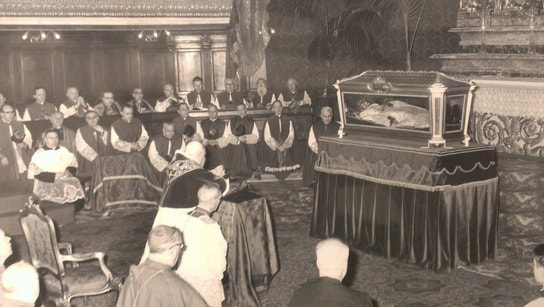
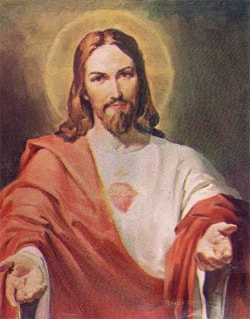
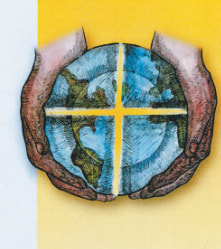

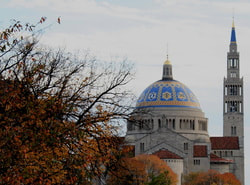
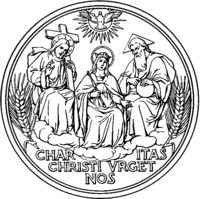
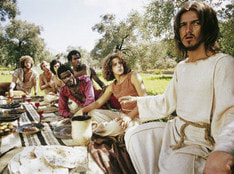
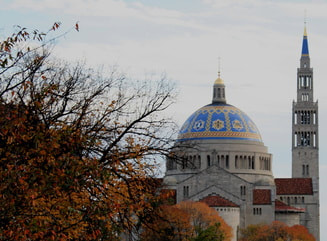


 RSS Feed
RSS Feed